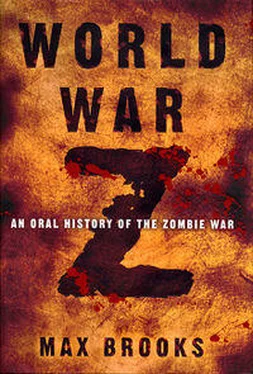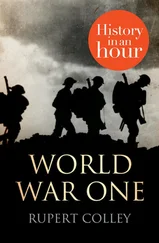Over the next few weeks, we observed dozens of military vessels, too, any of which could have probably detected us, but none of which seemed to care. You know the USS Saratoga? We saw her, being towed across the South Atlantic, her flight deck now a tent city. We saw a ship that had to be HMS Victory , plying the waves under a forest of improvised sails. We saw the Aurora, the actual World War I-era heavy cruiser whose mutiny had sparked the Bolshevik Revolution. I don’t know how they got her out of Saint Petersburg, or how they found enough coal to keep her boilers lit.
There were so many beat-up hulks that should have been retired years ago: skiffs, ferries, and lighters that had spent their careers on quiet lakes or inland rivers, coastal crafts that should have never left the harbor for which they’d been designed. We saw a floating dry dock the size of an over-turned skyscraper, her deck now stuffed with construction scaffolding that served as makeshift apartments. She was drifting aimlessly, no tug or support vessel in sight. I don’t know how those people survived, or even if they survived. There were a lot of drifting ships, their fuel bunkers dry, no way to generate power.
We saw many small private boats, yachts, and cabin cruisers that had lashed themselves together to form giant directionless rafts. We saw many purpose-built rafts as well, made from logs or tires.
We even came across a nautical shantytown constructed atop hundreds of garbage bags filled with Styrofoam packing peanuts. It reminded us all of the “Ping-Pong Navy,” the refugees who, during the Cultural Revolution, had tried to float to Hong Kong on sacks filled with Ping-Pong balls.
We pitied these people, pitied what could only be their hopeless fate. To be adrift in the middle of the ocean, and prey to hunger, thirst, sunstroke, or the sea herself. . . Commander Song called it “humanity’s great regression.” “We came from the sea,” he would say, “and now we’re running back.” Running was an accurate term. These people clearly hadn’t put any thought into what they would do once they reached the “safety” of the waves. They just figured it was better than being torn apart back on land. In their panic they probably didn’t realize they were just prolonging the inevitable.
Did you ever try to help them? Give them food or water, maybe tow them…
To where? Even if we had some idea where the safe ports might have been, the captain wouldn’t dare take the risk of detection. We didn’t know who had a radio, who might be listening to that signal. We still didn’t know if we were a hunted boat. And there was another danger: the immediate threat of the undead. We saw a lot of infested ships, some where the crews were still fighting for their lives, some where the dead were the only crew left. One time off Dakar, Senegal, we came across a forty-five-thousand-ton luxury liner called the Nordic Empress. Our search scope’s optics were powerful enough to see every bloody handprint smeared on the ballroom’s windows, everv fly that settled on the deck’s bones and flesh. Zombies were falling into the ocean, one every couple of minutes. They would see some-thing in the distance, a low-flying aircraft, I think, or even the feather of our scope, and try to reach for it. It gave me an idea. If we surfaced a few hundred meters away, and did everything we could to lure them over the side, we might be able to clear the ship without firing a shot. Who knows what the refugees might have brought aboard with them? The Nordic Empress might turn out to be a floating replenishment depot. I presented my proposal to the master at arms and together we approached the captain.
What did he say?
“Absolutely not.” There was no way of knowing how many zombies were onboard the dead liner. Even worse, he motioned to the video screen and pointed to some of the zombies falling overboard. “Look,” he said, “not all of them are sinking.” He was right. Some had reanimated wearing life jackets, while others were beginning to bloat up with decomposition gases. That was the first time I had ever seen a floating ghoul. I should have realized then that they would become a common occurrence. Even if 10 percent of the refugee ships were infested, that was still 10 percent of several hundred thousand vessels. There were millions of zombies falling randomly into the sea, or else pouring in by the hundreds when one of those old hulks capsized in rough weather. After a storm, they would blanket the surface to the horizon, rising waves of bobbing heads and flailing arms. Once we raised the search scope and were confronted with this distorted, greenish-gray haze. At first we thought it was an optical malfunction, as if we’d hit some floating debris, but then the attack scope confirmed that we’d speared one of them right under the rib cage. And it was still struggling, probably even after we lowered the scope. If ever something brought the threat home…
But you were underwater? How could they…
If we surfaced and one was caught on deck, or on the bridge. The first time I cracked the hatch, a fetid, waterlogged claw darted in and had me by the sleeve. I lost my footing, fell onto the lookout below me, and landed on the deck with the severed arm still clamped to my uniform. Above me, silhouetted in the bright disc of the open hatch, I could see the arm’s owner. I reached for my sidearm, fired straight up without thinking. We were showered in bone and bits of brain. We were lucky … if any of us had had any kind of open wound … I deserved the reprimand I got, although I deserved worse. From that point on, we always did a thorough scope sweep after surfacing. I would say that, at least one in every three instances, a few of them were crawling about on the hull.
Those were the observation days, when all we did was look and listen to the world around us. Besides the scopes we could monitor both civilian radio traffic and even some satellite television broadcasts. It wasn’t a pretty picture. Cities were dying, whole countries. We listened to the last report from Buenos Aires, the evacuation of the Japanese home islands, too. We heard sketchy information about mutinies in the Russian military. We heard after reports of the “limited nuclear exchange” between Iran and Pakistan, and we marveled, morbidly, at how we had been so sure that either you, or the Russians, would be the ones to turn the key. There were no reports from China, no illegal or even official government broadcasts. We were still detecting naval transmissions, but all the codes had been shifted since our departure. While this presented something of a personal threat-we didn’t know if our fleet had orders to hunt down and sink us-at least it proved our whole nation hadn’t disappeared into the stomachs of the undead. At this point in our exile any news was welcome.
Food was becoming an issue, not immediately, but soon enough to begin considering options. Medicine was a bigger problem; both our Western style drugs and various traditional herb remedies were beginning to run low because of the civilians. Many of them had special medical needs.
Mrs. Pei, the mother of one of our torpedo men, was suffering from chronic bronchial problems, an allergic reaction to something on the boat, the paint or perhaps machine oil, something you couldn’t simply remove from the environment. She was consuming our decongestants at an alarming rate. Lieutenant Chin, the boat’s weapons officer suggested, matter-of-factly, that the old woman be euthanized. The captain responded by confining him to quarters, for a week, on half-rations, with all but the most life-threatening sickness to go untreated by the boat’s pharmacist. Chin was a coldhearted bastard, but at least his suggestion brought our options into the light. We had to prolong our supply of consumables, if not find a way of recycling them altogether.
Читать дальше












